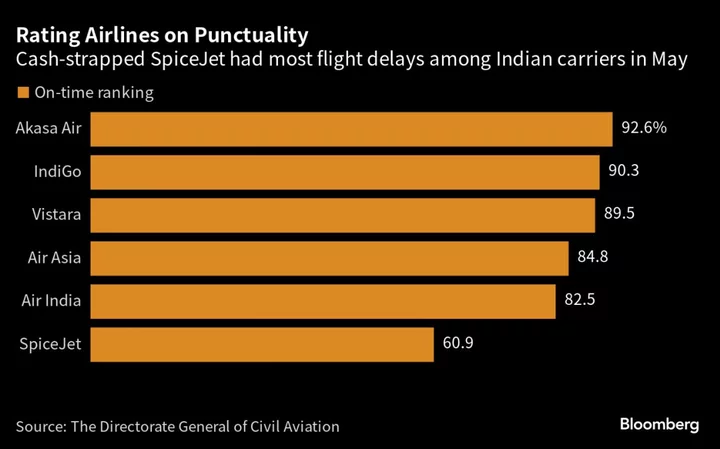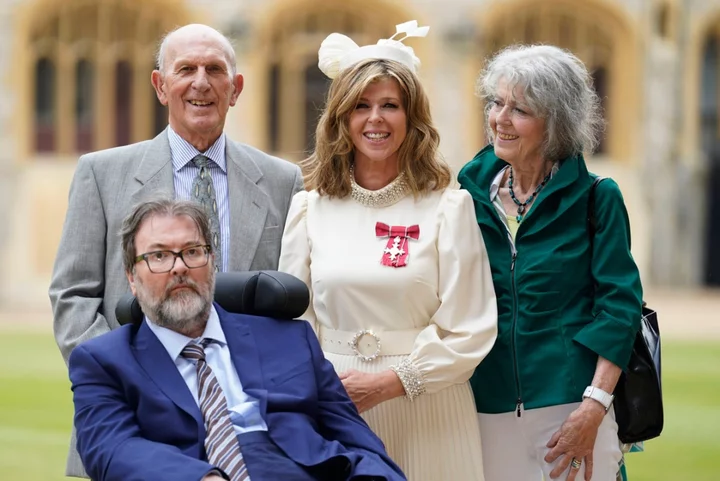
8 budget-friendly ways to juggle childcare and work during holidays
Idyllic images of happy children playing in sunny gardens during the summer holidays aren’t so easy to turn into a reality when you’re a working parent. Instead of wondering how full to fill the paddling pool, working mums and dads are more likely to be doing their sums about paying for the childcare they need so they can work as their kids enjoy the summer holidays. Emily Pritty, joint head of legal advice service at the charity Working Families, points out that its recent research found four in 10 low-income families have gone into debt to pay for childcare, nearly half have had to reduce their hours, and a fifth have even quit their job to manage childcare. “The summer holidays are a source of stress and anxiety for many working families whose work situation doesn’t allow them any flexibility to manage childcare and who can’t afford the additional childcare costs,” she says. “School holidays are the pinch point for so many working families with school-aged children, as the usual pattern of caring and routine changes, and the demands of work don’t reflect this.” But there are ways to make summer childcare more affordable for the UK’s 17.5 million working parents and carers, says Sabine Kobayter, chief marketing officer at Pebble, which connects parents with childcare and activity providers. “The summer holidays can be really hard for parents who are trying to juggle work and childcare – while also trying to feed hungry minds with activities that will stimulate children,” she says. “There’s a huge variance in the cost of finding childcare, and trips out as a family can quickly add up. The good news is there are many solutions to help find affordable ways to keep children entertained whilst spinning work plates too.” Here are budget-friendly summer childcare solutions suggested by Kobayter and Pritty… 1. Use holiday camps From sports camps to street dance, drama, academic and cookery, holiday camps start from £16.50 per day, says Kobayter. “Holiday camps are great as they often mirror the working day, and children can find camps that match their hobbies and interests,” she says, explaining that as holiday camps increase in popularity, the trick to getting a space is to book your child’s slot as early as possible. “This also allows you to plan your work schedule with the peace of mind knowing your children are being cared for, while doing something they love, and meeting new friends.” 2. Take paid or unpaid leave Many parents will have to use their annual leave to look after their kids over the summer, and if they don’t have enough left, unpaid leave is a statutory option, says Pritty. “The burden of taking unpaid time off does tend to fall more heavily on women due to the gender pay gap, as for family finances, often the decision is for the parent on the lower income to take the leave.” 3. Stretch out free childcare You’re entitled to 30 hours of free childcare in England, and Pritty suggests: “You could stretch your entitlement so you receive fewer hours each week but get the childcare during school holidays too.” Check whether your childcare provider will allow you to do this. 4. Get friends and family to help Many parents rely on informal networks of friends and family to help cover the gaps in caring throughout the year, and Pritty says: “This is particularly prevalent in school holidays, given the cost of holiday clubs and formal childcare. Parents often group together with friends to cover particular days and then reciprocate in a shared care arrangement.” 5. Use free kids’ activities “Not everything costs,” promises Kobayter, who suggests that if parents use annual paid/unpaid leave, or get friends and family to help with childcare, they keep subsequent costs down by searching for free activities local to them, and lock in days out as a family. “Museums, national parks, events in local parks – there’s a surprising amount available,” she says. 6. Try ad-hoc childcare Until recently, childcare needed to be locked in months, sometimes even years, in advance, says Kobayter, but now childminders and childcare providers are starting to enable ad-hoc bookings for parents in need. “As work becomes more flexible, childcare needs to as well,” she observes. “If you have a last-minute need to book childcare, all is not lost.” Pritty says the Family and Childcare Trust can provide details about your local Family Information Service, which will in turn be able to tell you about available summer childcare including childminders, nurseries, out of school clubs and any holiday schemes running in your local area. 7. Use vouchers if possible Childcare vouchers, tax-free childcare and the childcare elements of working tax credit and universal credit can all be used in holiday clubs, if the childcare is registered or approved, says Pritty, although she warns that not all childcare providers accept vouchers and they need to be signed up to tax-free childcare. You can check the types of childcare that you can get help with. 8. Check you’re getting the right financial help Pritty suggests parents check they’re getting the childcare support they are entitled to, by using this online calculator if necessary.
2023-07-04 15:49

Sainsbury’s Reports Higher Sales as Food Inflation Starts to Fall
J Sainsbury Plc reported higher sales and said that food inflation is starting to fall, suggesting that the
2023-07-04 14:57

Hong Kong Aviation Recovery Is Coming Much Sooner Than Expected
Hong Kong’s aviation sector will recover to pre-pandemic levels by the end of 2024, three years sooner than
2023-07-04 12:16

SpiceJet Is Most Delayed Indian Airline as Summer Rush Hits
Passengers on cash-strapped SpiceJet Ltd. are experiencing the most flight disruptions in India, the world’s fastest-growing aviation market.
2023-07-04 10:17

Taylor Swift’s Singapore Concert Frenzy Propels UOB Card Signups
Taylor Swift fans across Asia have flocked to sign up for United Overseas Bank Ltd.’s cards as the
2023-07-04 09:23

US maternal deaths doubled in last 20 years, study finds
American Indian and Alaska Native women see the greatest increase, new research finds.
2023-07-04 06:25

13 Facts About Opossums
Opossums have a bad reputation, but they’re smarter and more beneficial to people than other woodland denizens. Discover more about these unique marsupials here.
2023-07-04 02:25

U.S. maternal mortality more than doubled since 1999, most deaths among Black women - study
By Nancy Lapid The number of U.S. women who died within a year after pregnancy more than doubled
2023-07-04 00:17

Why Do Cats Lick Tape and Plastic?
Your cat's weird snacking habits may be related to compulsive behavior condition—or they might just like the crinkly sound.
2023-07-03 21:17

Kate Garraway’s husband Derek Draper admitted to hospital after MBE ceremony
Kate Garraway’s husband Derek Draper was admitted to hospital after she was awarded an MBE last week, the presenter has revealed. The Good Morning Britain host, 56, reflected on the “extraordinary day” she met the Prince of Wales at Windsor Castle with Draper watching from close by. Garraway, who was awarded the MBE for her services to broadcasting, journalism and charity, recounted an eventful week that “started with Derek in hospital and ended with Derek in hospital”. Draper, who is a former political advisor and author, contracted Covid-19 in March 2020, became critically ill and was put into a medically-induced coma. He still receives 24-hour care at home and is frequently in and out of hospital for treatments. “It was so wonderful to see Derek’s determination to be there, so kind of the Prince of Wales, to make it special for him & to recognise the work of Jake our incredible carer, who represents all those who make Derek’s daily life possible,” Garraway wrote in an Instagram post that was shared on Sunday (2 July). “Tomorrow Derek is back in hospital and of course the daily struggles go on – but the fact that he was able to be part of Wednesday is to be treasured & can’t thank everyone in the @NHS and all around him who love him for making it possible.” The couple have been married since 2005 and share two children, Darcey and Billy. Previously, Garraway spoke candidly about the reality of caring for her husband and said she has felt “frustrated, depressed and emotional” since he fell ill. The TV presenter became a full-time carer for Draper, alongside medical professionals. At the MBE ceremony, Garraway revealed that Draper “burst into tears” as she was awarded the honour by Prince William, who turned to wave at him as the former political advisor watched from his wheelchair. Garraway said: “Ah, I know, Derek burst into tears. The Prince of Wales said, ‘How’s Derek?’ and I said, ‘He’s here’. “[William] said he wants to go over [to Draper] but he’s not allowed to leave the rug, there’s a very fancy gold carpet that he stands on. “So we turned and saw and then obviously Derek was very tearful and then spoke about Jake [Draper’s carer] and gave Jake a wave as well,” she continued. Garraway has made two documentaries, Finding Derek and Caring For Derek, about her family’s journey navigating Draper’s illness. Both programmes won National Television Awards in the authored documentary category. Read More Plans for Prince Andrew to move into Harry and Meghan’s former home ‘quietly shelved’ Jo Lindner death: YouTube bodybuilding star known as Joesthetics ‘dies from aneurysm’, aged 30 Stanley Tucci recalls trying to break up with wife Felicity Blunt over 21-year age gap Kate Garraway reveals Prince William asked after Derek Draper while awarding her MBE Kate Garraway made MBE by Prince William with Derek Draper’s support Affected by someone else’s drinking? 3 key pieces of advice for loved ones of alcoholics
2023-07-03 18:25

European Airline Passengers Face Risk of Another Traffic Overload Summer
European airline passengers risk another summer of travel chaos as destinations including Budapest, Marseille and Athens face an
2023-07-03 18:17

Affected by someone else’s drinking? 3 key pieces of advice for loved ones of alcoholics
Is there an alcoholic in your life? We don’t often talk about the people whose lives have been affected by someone else’s drinking – but the impact on loved ones, family and partners can be immense. For Alcohol Change UK – the charity behind Alcohol Awareness Week (July 3-9) – it is important that loved ones of alcoholics know they are not alone. According to a new survey commissioned by the charity – which is not anti-alcohol but working towards ‘alcohol change’ and to reduce the harm it causes – some 19% of drinkers consider alcohol to be an “essential” in their shopping basket, with 15% of people worried about the amount of alcohol someone in their household has been drinking. “Far too many lives are tragically cut short each year due to alcohol, with the latest figures on the number of alcohol-specific deaths at a record high. At the moment, 600,000 people in the UK could benefit from alcohol treatment but the vast majority are not receiving it,” said Andrew Misell, Director for Wales at Alcohol Change UK. “It can be heart-breaking to see someone close to you struggle with alcohol problems. But it is not only the drinker who is affected – their loved ones can feel the effects too. The pressures of caring for someone who is drinking heavily can be overwhelming,” Misell adds. “But by encouraging them to seek support, you can really improve their health and yours.” Is somebody close to you an alcoholic? Here are some key pieces of advice that may be helpful… Visit your GP Seeing your GP could help you address any anxiety you may be grappling with. They can offer professional and nuanced advice that will help you communicate how you really feel to a loved one who needs to stop drinking, and steer you towards your own mental health support if necessary. “Living with someone who is struggling with an alcohol problem can be exhausting. You will want to do the best you can for your loved one, but your relationship with them is bound to be strained. You may no longer feel able to trust them,” Misell said. “They may well be neglecting family duties, and their moods may swing erratically. It’s important you find some time and space for yourself and for your own concerns and interests.” Also, anyone is allowed to contact the GP or safeguarding anonymously if, for instance, there is a parent with alcoholism looking after young children. Reach out to family support services Whatever your relationship with the person with an alcohol problem, other people will have had, or be having, similar experiences. Connecting with them at one of the many family support services across the country can be really helpful. “It may be worth you seeking out support from a families’ organisation like Adfam or Al-Anon, where you’ll be able to connect with others who are in the same boat as you,” Misell said. Bottled Up, meanwhile, offers information and advice for family members living with someone who is alcohol-dependent. The founders of the organisation are a therapist and a psychologist who have direct experience with alcoholism. Al-Anon provides free meetings where the family and friends of alcoholics can listen to the shared experiences of those in a similar positions. Al-Anon also has a separate arm for children aged between 12-17 called Alateen, where teenagers can share their experiences and find support, while also learning about the nature of the illness. Think about the four aspects of their health Before sitting down to talk about what is going on with a family member who is drinking too much, it might be a good idea to be prepared about what you need to say. This could be a helpful step in deciding what actions to take in order to seek help, too. Dr Niall Campbell, Priory consultant psychiatrist and addictions expert, based at Priory Hospital in Roehampton, southwest London, suggests thinking about these four aspects of their health first: physical health, mental health, relationship health and their work health. “Are they falling over? Have they injured themselves? Have they been drinking to the point of amnesia? Blackouts? Are they hungover and sick in the morning? Have they gone to see their GP? Some results, such as high blood pressure, could be a good indicator,” Campbell said. “And then mentally, is it making them depressed? Are they irritable? Do they seem ashamed or guilty? Is their drinking adversely affecting relationships between a husband and wives, siblings, children, and parents? “When it comes to their work, are they missing it? Are they late going into the office and saying they can’t do their job properly because they’re drinking at home? This is a big problem since the lockdown.” He suggests doing this with a third party that’s already aware of the situation, so you can pull together more concrete examples. Read More Charity boss speaks out over ‘traumatic’ encounter with royal aide Ukraine war’s heaviest fight rages in east - follow live The history of royal fashion at Wimbledon How to be waterwise in your garden this summer Every Barbie-inspired outfit Margot Robbie has worn so far
2023-07-03 16:58
